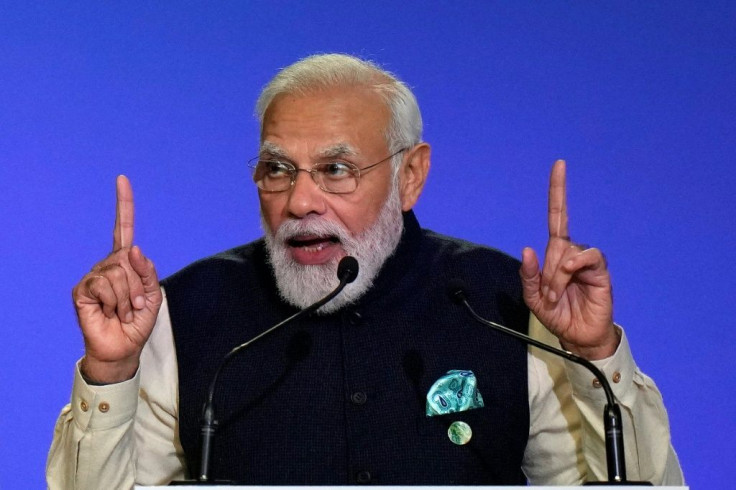Modi Stuns The World With A Net Zero By 2070 Pledge. A Game Changer Or A Safe Bet?

Narendra Modi, the Prime Minister of India, took the COP26 by surprise when he announced a pledge of Net Zero Emissions by 2070. With this announcement, Modi not only ensured that India, the third biggest emitter of climate change causing pollutants, remained at the forefront of efforts to rein in runaway climate change but also made sure that India gets ample time to continue with its fossil fuel-driven economic developmental status quo since 2070 is decades away.
Indeed, this step could be a game changer for both India and the world as the former had always insisted that the developed Global North take the lead in the fight against global warming and climate change. The target of 2070 is two decades past what the West would ideally see as the Net Zero Deadline. Of course, this means that the West has abundant time to pay developing countries such as India for the efforts to combat climate change. On the other hand, it can also be seen as Modi having played it safe since 2070 is decades away and India can continue with its various projects causing carbon emissions.
A key consideration why India's Net Zero by 2070 can be a game changer is that Modi succeeded in crossing the bridge as far as the gap between the long-held insistence of the developing world that the West ought to take the lead in combating climate change is concerned. With this unilateral pledge, Modi might have well seized the initiative and provided there are clear implementation plans, he could very well nudge the West towards stepping up responsibility for climate change, given that they contributed to the lion's share of emissions. Indeed, perhaps taking a cue from India, smaller and poorer Asian countries followed suit with tangible targets for reducing emissions at the COP26.

However, the devil, as always, is in the details. India would need a commitment of 1 Trillion Dollars to meet the ambitious goal of Net Zero by 2070. Not sure where and if, this would be financed. Moreover, there is a slip between rhetoric and reality, especially when India with its vast complexities and uncertainties is concerned. Of course, PM Modi had also announced a short term target for power from renewable energy sources, with the pledge to produce half of the electricity from renewable sources by 2030 and the promise to produce 500 Gigawatts from low emission sources, up from 450 GW. In addition, India is slated to cut nearly 1 Billion Tons of Carbon Dioxide emissions by 2030 from the business as usual sources.
Having said that, experts noted that there is no detailed roadmap as of yet, and skeptics wondered whether this was yet another case of headline management, something which PM Modi is known for. For instance, will the notorious smog that envelops Northern India, this time of the year, allow the privilege of Zero Emissions in the conceivable future? Of course, the transition to CNG is a key victory, though achieved much later than anticipated, and can be a template of combined executive Vision and judicial Oversight.
However, for a change, we are in tune with the scientific consensus of the point of no return being reached around that time, and hence, this goal is worth the taking. If, and it is BIG If is the execution and implementation in a diverse country such as ours where conflicting agendas, not to mention oversized egos of the powers that be, stymie progress and derail the movement. Maybe, this is why 2070 which is generations away from now has been chosen.
Meanwhile, a growing chorus of climate change activists and assorted environmentalists have questioned the basis of the Net Zero targets since such attention-grabbing pledges provide a cover for countries to carry on with business as usual in the short as well as medium term. After all, who among the present crop of world leaders would be around by 2050, let alone 2070, and hence, those who have pledged have essentially bought time for themselves and their countries.
India, in particular, has little time to lose in the fight against climate change, more so when the country of 1.3 Billion people is extremely vulnerable to the impacts of runaway climate change. Therefore, Modi can be credited with the bold pledge and more so, when its burgeoning middle class has just begun to aspire to Western consumerist lifestyles. Indeed, in his speech, Modi spoke about the need to raise my voice as far as the West's help to India in its fight against climate change is concerned. Moreover, with China's Xi Jinping not in attendance, Modi stole the show making him stand out among his peers for a bold and ambitious pledge. Perhaps Biden and others from the developed world can pitch in and do their bit to ensure that there are no tradeoffs between development and environment and countries like India can join the West in economic as well as environmental standards.





